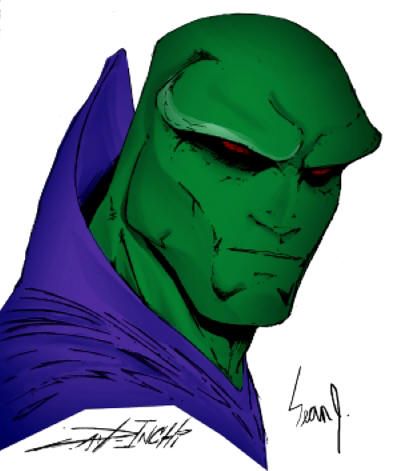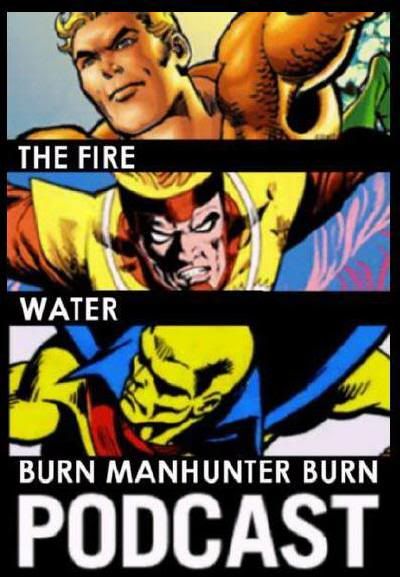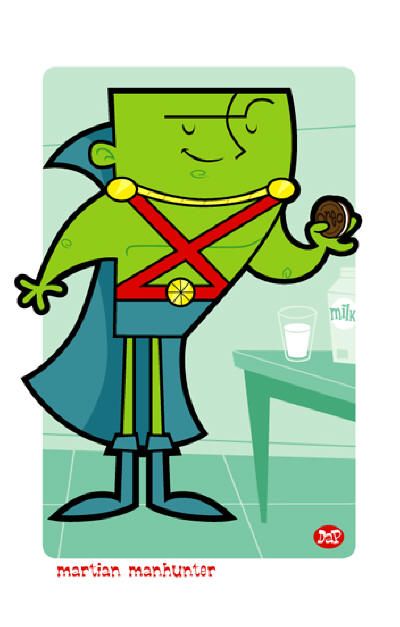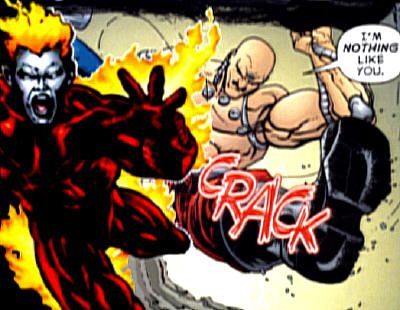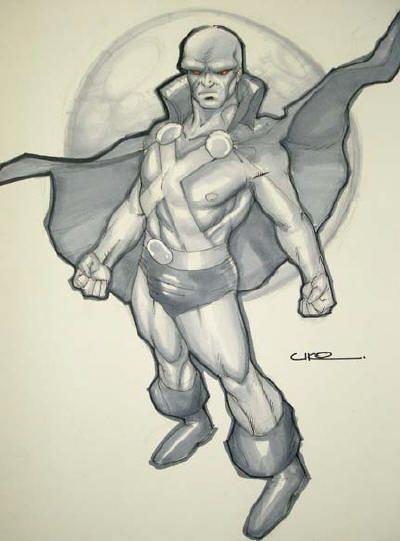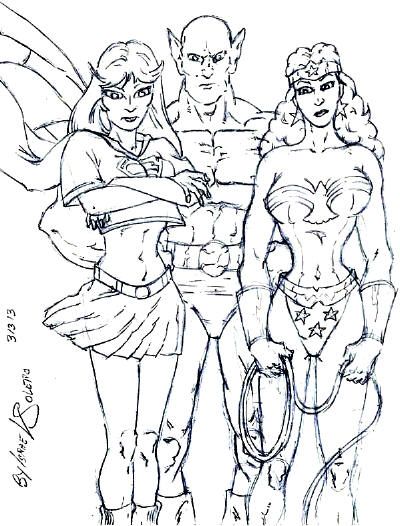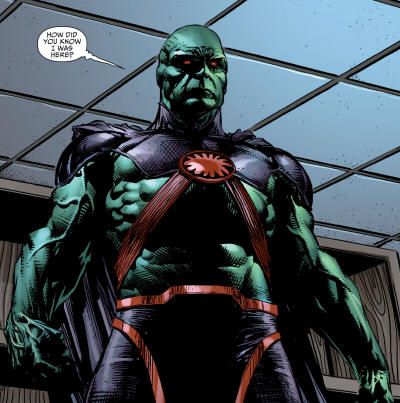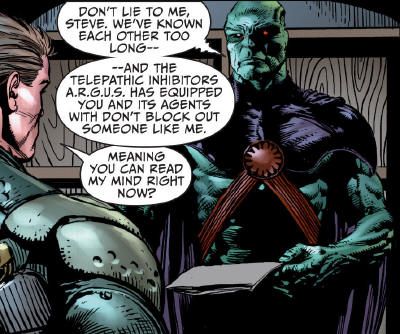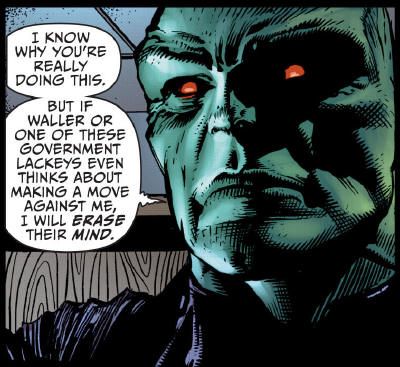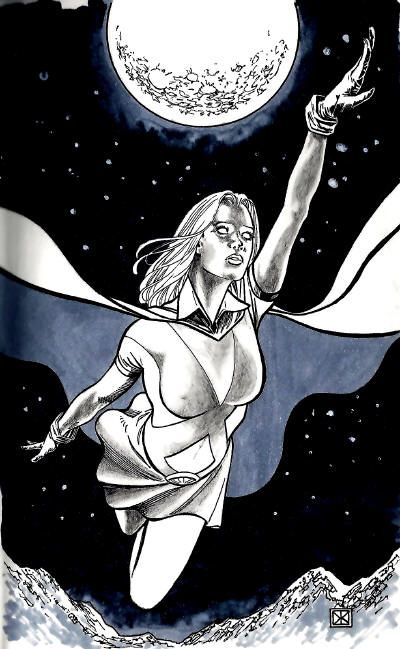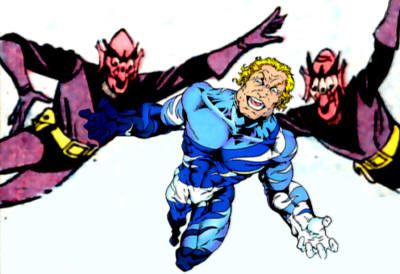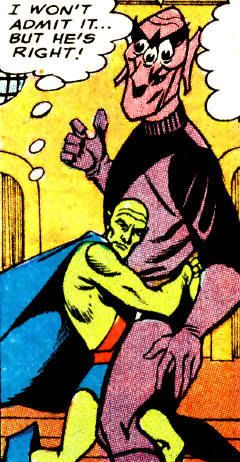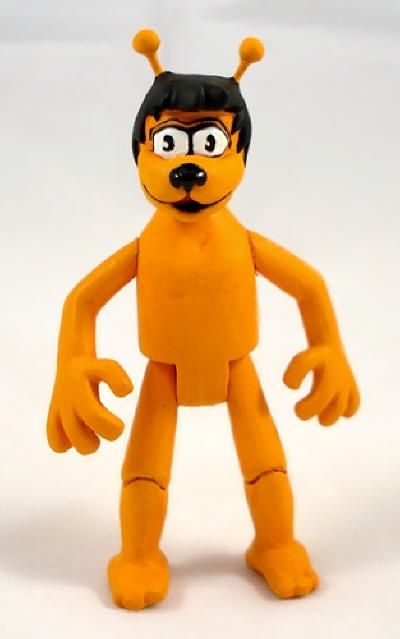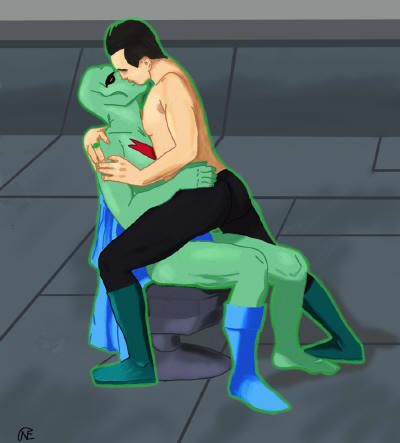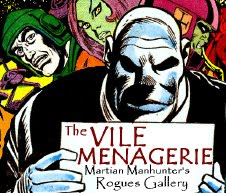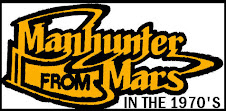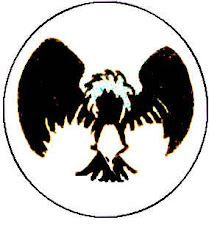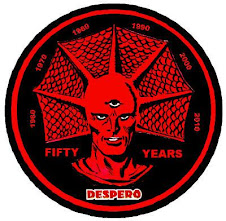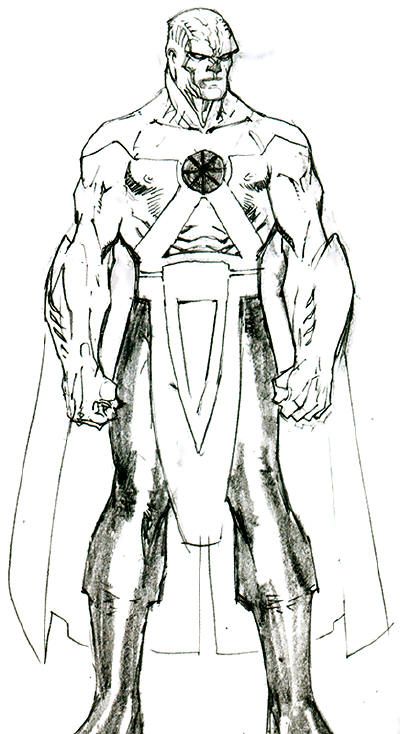
J'onn J'onzz was a scientist from Mars who was teleported to Earth and stranded. He couldn't very well practice Martian science while secretly on another world, and anyway, there's not much indication that Martian science was any great shakes. They may have had some nifty architecture and a few ray guns, but they were also just about the only alien race that didn't have interplanetary travel worked out. I mean, it was Mark Erdel who came up with the robot brain that brought J'onzz to Earth, and it took J'onzz over a decade to figure out how to throw it in reverse, assuming he didn't have help. One of the only science experiments we ever saw him involved with was
TOR, the robot that was accidentally turned into an unstoppable rampaging criminal. Not something you want on your resume.
While J'onn J'onzz was stuck on Earth, he decided to pretend to be a police detective and fight crime with his awesome concealed Martian powers. For quite a while, he just fought gangsters and mad scientists, who he still struggled with despite his overwhelming extraterrestrial talents. His parents and kid brother were alive and well, and they visited one another on occasion. John Jones may not have had a proper girlfriend, but his relationship with sometimes partner Diane Meade wasn't entirely professional, either. In short, as created and portrayed in most of his original series, J'onn J'onzz was a dude. He was a seemingly unexceptional Martian who made the most of becoming a reverse John Carter, except not really, because John Carter became the revered warrior of his adoptive world and the recipient of sweet princess lovin'. John just had a decent apartment where he kept his dog while serving as the least popular member of the Justice League of America until he was quietly pushed aside.
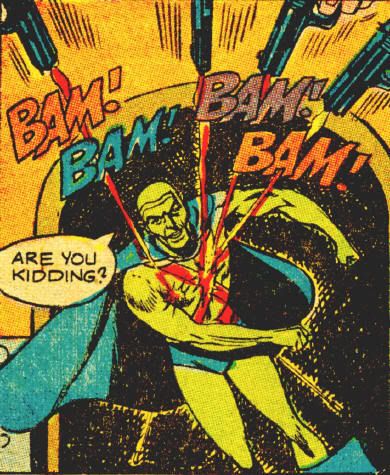
John Jones was created in a time when characters didn't have to be terribly involved. His motivation could be chalked up to a guy needing a hobby while stuck in (literally) Middletown, U.S.A. Later, his scene got messed up by John Jones' apparent demise, and his secret existence as the Manhunter from Mars had already been revealed. As a result, J'onn J'onzz just tooled around as himself with his imp buddy Zook in tow as they looked for a strange magical artifact that kept spitting out monsters for them to fight. By that point, the Marvel revolution was beginning, with Spider-Man specifically changing everyone's game. John Jones came from a time between the Golden and Silver Ages, and was exceptionally simplistic for his times in comparison to the Julius Schwartz heroes, much less Stan Lee's. Floundering in the market and no longer buoyed by being hosted in a Batman comic, J'onn J'onzz needed to make a change.
The main creators of J'onn J'onzz's solo adventures were Jack Miller and Joe Certa. In their title's final years, they chose to update the initial alien cop angle to embrace the 1960s spy craze. The basic premise was still the same, but J'onn J'onzz would adopt the more suave and conniving role of Marco Xavier, international playboy. Most of his final adventures involved the criminal organization VULTURE, who played fast and loose with human life. The Manhunter met them halfway, facilitating the dispatching of evil agents without any sign of remorse, marking J'onn J'onzz as perhaps the first true "grim n' gritty" revised super-hero. The Manhunter's stories were increasingly brutal, with his final tale ending in the explosive demise of his arch-foe Mister V. The Manhunter briefly returned to the pages of
Justice League of America, where he became the poster child for retroactive continuity. It was revealed that J'onzz was Mars' "science leader," living in exile after the racial conflict between two nations had seen the Pale Martians gain the upper hand. In his absence, a hitherto unknown nemesis named Commander Blanx sold out the entire planet of Mars and rendered it uninhabitable through global genocide. J'onn J'onzz killed Blanx for his heinous act, then took a spaceship to parts unknown in search of the few survivors of his home planet.
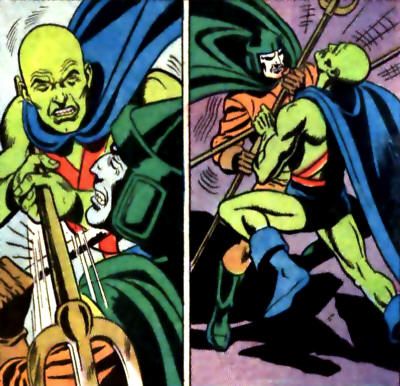
At this point, J'onn J'onzz was clearly no longer a dude. This guy was a muckity-muck in a dirty conflict that made World War II look like a tea party. This J'onn J'onzz was a hardened soldier concealing essential information from his Justice League confederates. In the end, whatever gambits J'onzz was running failed, his planet died, and none of those supporting players or villains seen in the old stories survived J'onzz's hubris. That's some heavy, dark stuff for a super-hero to carry around. Superman's grief over a Krypton dead while he was in diapers, fated to be destroyed no matter how many times he traveled back in time to save it, was juvenile compared to J'onzz's weight of personal adult culpability for an incalculable catastrophe.
The Manhunter from Mars continued down this harrowing path. A girl he'd known back home turned out to be willing to see every other Martian enslaved to save her own skin. J'onn J'onzz's best friend faked his death, framed him for treason, and attempted to slaughter a peaceful native race for spoils with a naive Martian army behind him. A genetically engineered Martian "hero" overthrew the government and again conned his people into invading a world that meant them no harm. A former lover of J'onn J'onzz was among those forces, and made repeated attempts on J'onzz's life. The Manhunter himself was consistently played as a paranoid thug willing to assault his former friends with the thinnest of provocations.
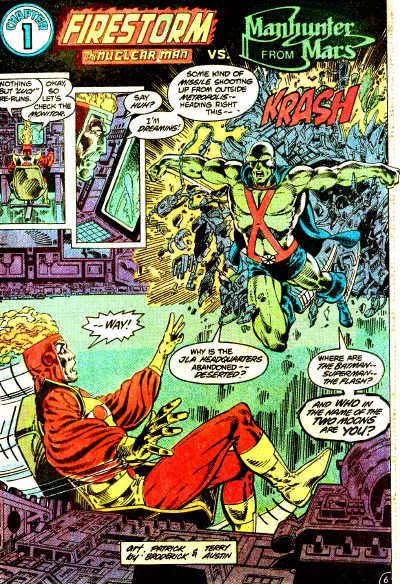
That began to change in 1984, when the Alien Atlas rejoined the Justice League of America as a minor player but helpful powerhouse while new heroes Vibe, Vixen, Gypsy and Steel took center stage (alongside veteran leaders Aquaman and Batman.) The revision of J'Onn J'Onzz accelerated in
Justice League International, where the Martian Manhunter became a leader and role model of the old school contrasted against dysfunctional Bronze/Modern Age punks like Guy Gardner. J'onn received his first mini-series, which erased the lion's share of his solo stories. He was retroactively made a husband and father whose family perished in a global plague over which he had no control beyond simply managing to survive through the twist of fate that brought him to Earth. There was no Commander Blanx, and J'Onn J'Onzz was now a blameless victim of tragedy. Even his long time vulnerability to fire was revealed as a psychosomatic response that he could work through with therapy.
At a time when super-heroes were becoming increasingly unstable and complex, J'Onn J'Onzz was simplified and grounded... spiritual and meditative. He was a sound, steady mentor who refused to abuse his considerable powers. He was sad and deep, but not conflicted like other deconstructed heroes. He stood out through his serenity at best, or his understandable irritability in the face of shenanigans at worst. This approach made him a well liked, essential aspect of an ensemble, but did not allow him to find purchase as a solo character. An eponymous mini-series and Justice League ongoing spin-off with Martian Manhunter as the lynchpin failed to make waves. Dan Jurgens teased a return to the colder J'Onn J'Onzz in his extended Bloodwynd subplot, and Christopher Priest set him up as a manipulative instructor in
Justice League Task Force, but neither take played out for long.
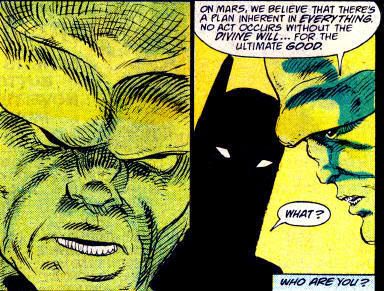
The Alien Atlas enjoyed a huge spike in interest during the late 1990s thanks to his association with the "Magnificent Seven"
JLA and popular recognition of his extraordinary power levels within the DC Universe. The longstanding stoic last survivor of Mars interpretation carried over into J'Onn J'Onzz's first major appearance in outside media as a member of the animated
Justice League, and guided him into his first ever ongoing self-titled comic book. His origin was revised so that he was again partially responsible for the destruction of Mars thanks to his protection of a heretofore unmentioned evil twin brother, Ma'alefa'ak. "Malefic" was killed by the Martian Manhunter at the end of his debut story arc, and J'Onzz showed an increased willingness to use his powers in a manner that was ethically questionable. However, J'Onn J'Onzz remained essentially the same reliable, even-tempered hero he had been for the previous decade and change. As the solo series progressed, more and more time was spent on untold tales from the past, usually involving team-ups with other heroes. The creators did not seem to know what to do with J'Onn J'Onzz, or weren't allowed to do what they wished, and so they wrote stories around the character instead of for him. Similarly,
JLA threw trashy odd couple girlfriends and bizarre retcon villains at the Alien Atlas, in order to make him less "boring" without changing the character as preferred by fans.
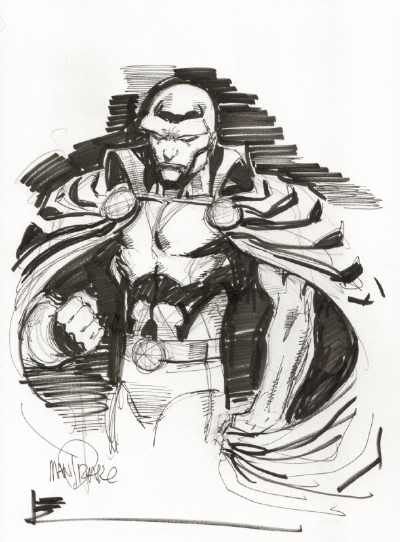
Martian Manhunter got another mini-series in the mid-00s that was in spirit very much a revival of the 1970s approach to the character; changing his appearance, alienating him violently from other heroes, and honing in on the racial conflict amongst Martians. The mini-series was broadly rejected, and J'Onn J'Onzz was soon sacrificed as part of a stunt to start off an unspectacular event mini-series. J'Onzz's body was barely cold when he was resurrected alongside other heroes as part of a stunt to cap off a well-received event mini-series. The Alien Atlas was back to recognizable form in the follow-up maxi-series
Brightest Day, which is to say all of the interesting actions were performed by a newly created villainess whose existence demanded another retcon to J'Onzz's origin, and it all amounted to a mean-spirited, underwhelming arc for the Sleuth from Outer Space.
Aside from short-lived and creatively anemic evil Green Martians popping up sporadically, J'Onzz's people remained dead. When Fernus slaughtered the White Martians, the prospect of J'Onzz trying to learn and teach racial tolerance fell by the wayside. His acquaintance with Miss Martian was in passing and platonic. Most every character from older Alien Atlas tales remained deceased or retroactively aborted. His most famous foe, Malefic, died in his first arc and made return visits only in flashbacks or as a psychic fragment. J'Onn J'Onzz was a static character from a lost culture with no place to go but ever backwards.
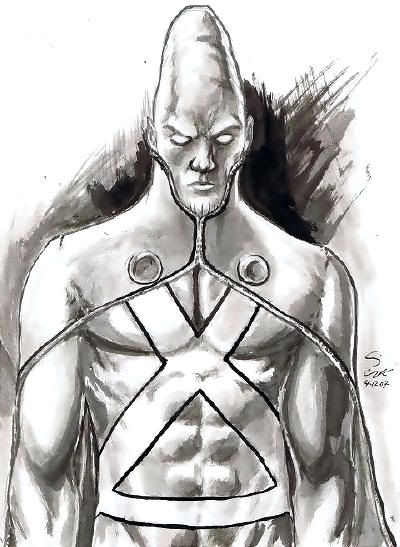
The New 52 Martian Manhunter has seen the return of an adversarial J'Onn J'Onzz with vague motivations acting from a place of moral ambiguity while advancing machinations of unclear ends. It's a jarring change for fans who know the character from cartoons or happier times in the comics, but their pushback has been met by other fans who are embracing this Alien Atlas as an empowered, effective super-hero in his own right. As a guy who has probably spent more time thinking about J'Onn J'Onzz over the past fifteen years than most anyone on the planet, I can see both sides' argument. However, I find myself ultimately siding with embracing the New 52 take.
You see, I was one of those people who were screaming for blood when the Ostrander/Mandrake series was being published because they weren't getting the character "right." In retrospect, I can see that they were hamstrung by the expectations of editors and readers like myself to maintain the Grandfather Super-Hero approach, but the fact is, that doesn't work for a solo character. J.M. DeMatteis took the Martian Manhunter to a place where he was nearly complete as an entity. His J'Onn J'Onzz longed to ascend spiritually and to take hold of a higher truth that precluded running around in a costume and punching bad guys. It was a heartfelt reaction to the tide of deconstructionist super-hero comics of the late '80s, but it also stalled out the character's ability to progress, since he could barely function within the genre due to the restrictions placed on him by being above it. The Green Guru was like a monk; rigidly disciplined, lacking libido, unimpeachable in his actions. Such a character can function in an ensemble, but someone evolved beyond his own creators is bound to end up spouting pseudo-profundities and being an insufferable read until his inevitable cancellation.
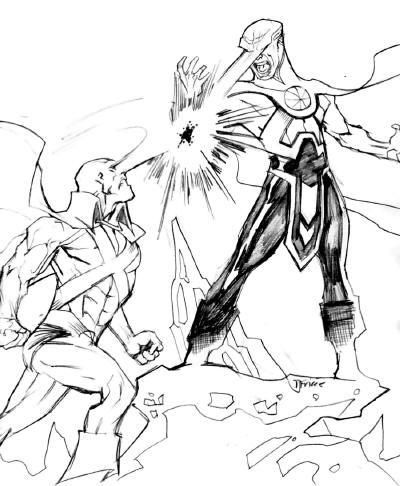
Despite being two years into the New 52, the Martian Manhunter hasn't been properly introduced yet. He was purely a background figure in
Stormwatch, has had a few teasing moments in
Justice League, and has only just begun to take part in
Justice League of America. What we do know is that he's on a clandestine mission to save civilization from an unknown, overwhelming threat that the Earth is not yet ready for. He has used his powers quite offensively, both literally on the page and against the sensitivities of some readers, but has not committed any indefensible acts depending on the circumstances he's confronting. This is clearly not the JLA's lovable pappy, but he is recognizable in his deeds as carrying on traditions from both the Silver and Bronze Ages, and by extension has not contradicted the intent of his creators in his conception and long term execution.
This is the same character who lied/psychically nudged his way onto a police force, and allowed them to believe their hero officer John Jones had died in the line of duty. This is the same character who kept the secret struggles of Mars to himself while serving alongside the Justice League, until that ploy blew up in his face. This is the same character who battered Superman, Hawkman, and Firestorm when they crossed his path.

J'Onn J'Onzz isn't safe and predictable anymore, and while that can be off-putting in some regards or feel like a betrayal of individual readers' trusts, it also allows the Manhunter to be intriguing and gives him directions to develop in as a solo hero. In a role reversal, elder readers like myself are now the paternal figures, and J'Onn J'Onzz is the adolescent entering adulthood. Do we really want this character to forever remain encased in amber as the grumbling Oreo-loving den mother overseeing green recruits? Shouldn't he be allowed to do things we don't necessarily agree with but are right for his life in these times, retaining hope and expectations that enough of "our" J'Onn remains to see him through?
What I keep going back to is that I read Martian Manhunter appearances in comics for over a decade without truly being a "fan." I liked him well enough, but he wasn't on my radar in the same way as other characters. Two moments stand out though: his angry eye-blasting of super-villains trying to take advantage of the Crisis on Infinite Earths, and the righteous fury in
A Midsummer's Nightmare that saw him shut down the minds of an entire super-team with a thought. I wasn't thinking about the ethics of his actions, but how his powers and the force of his emotions swept me up in his story. I haven't read any Martian Manhunter moments like those in a long time, but I feel like the New 52 offers the potential to revive the passion lost since my indoctrination into the Friends of Our Martian in 1996. The creators still have to do good quality work, but we have to give them the breathing room to get enthused enough about J'Onn J'Onzz to deliver on his promise. It's the difference between a compelling concept reaching its potential, and a comforting cypher Cookie Martian forever loitering in the background behind heroic icons.
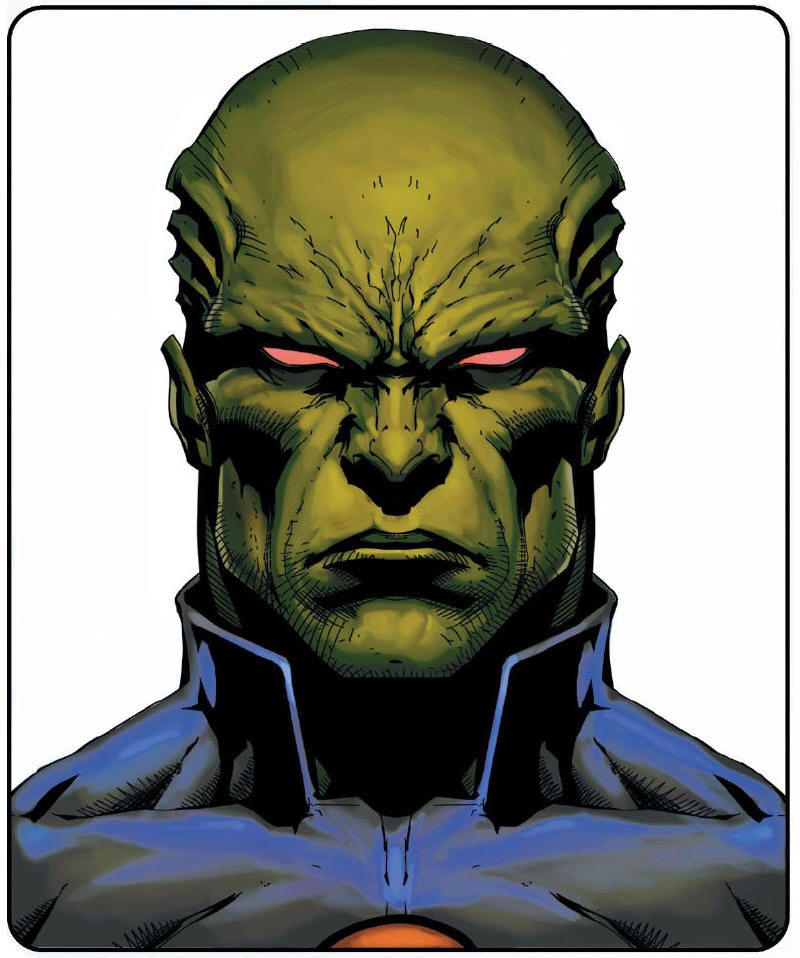

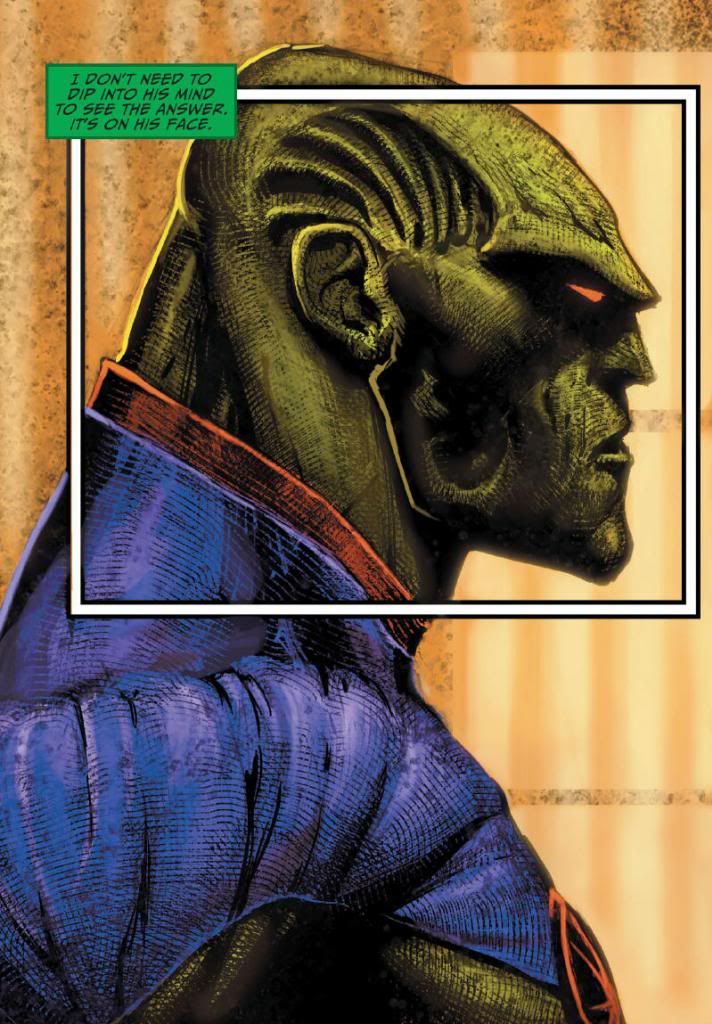

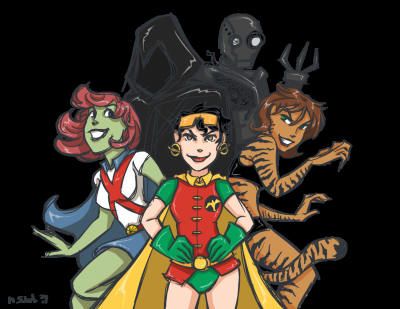
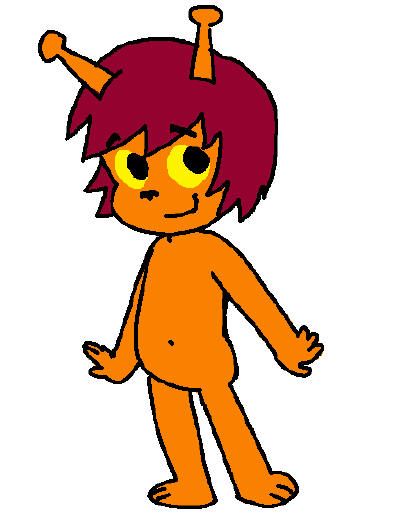
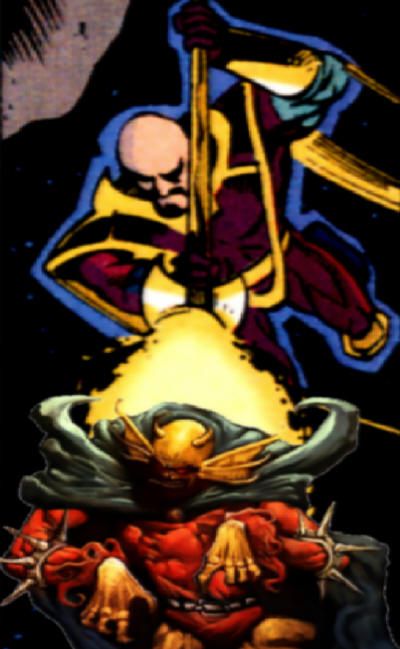

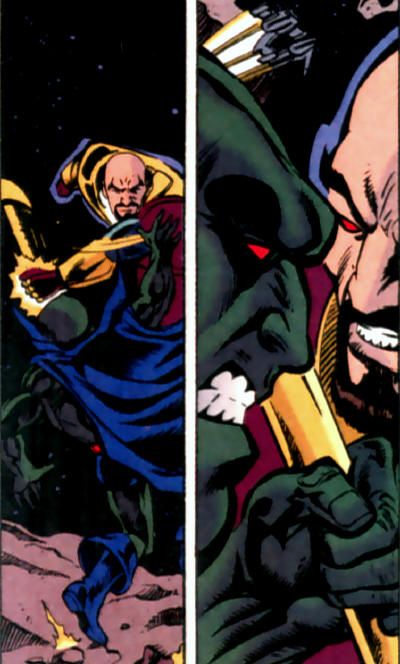
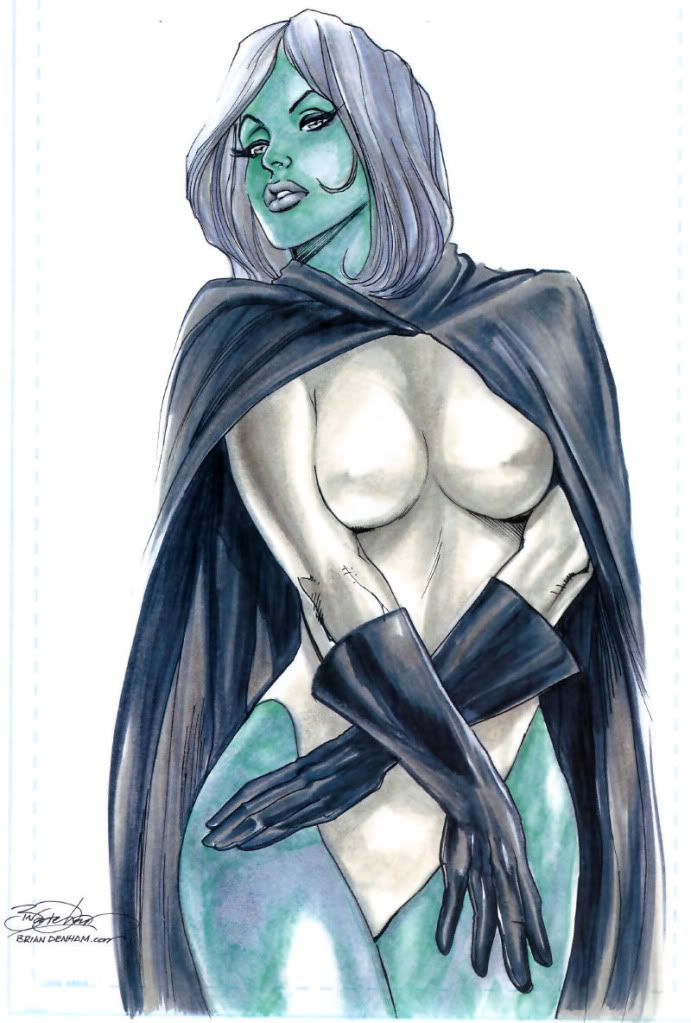
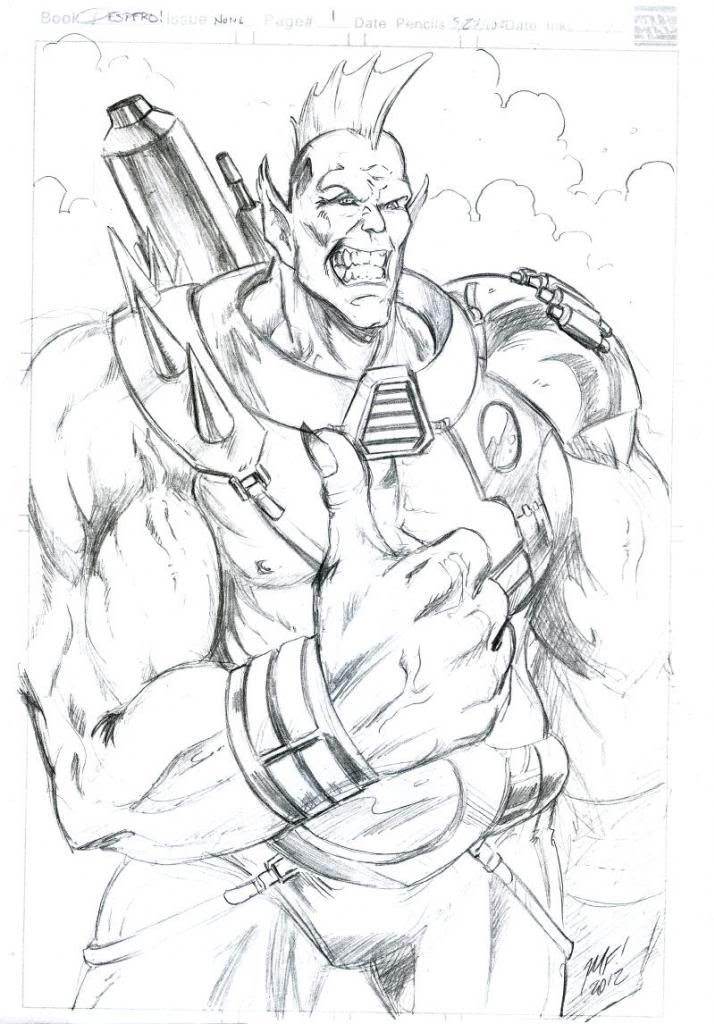
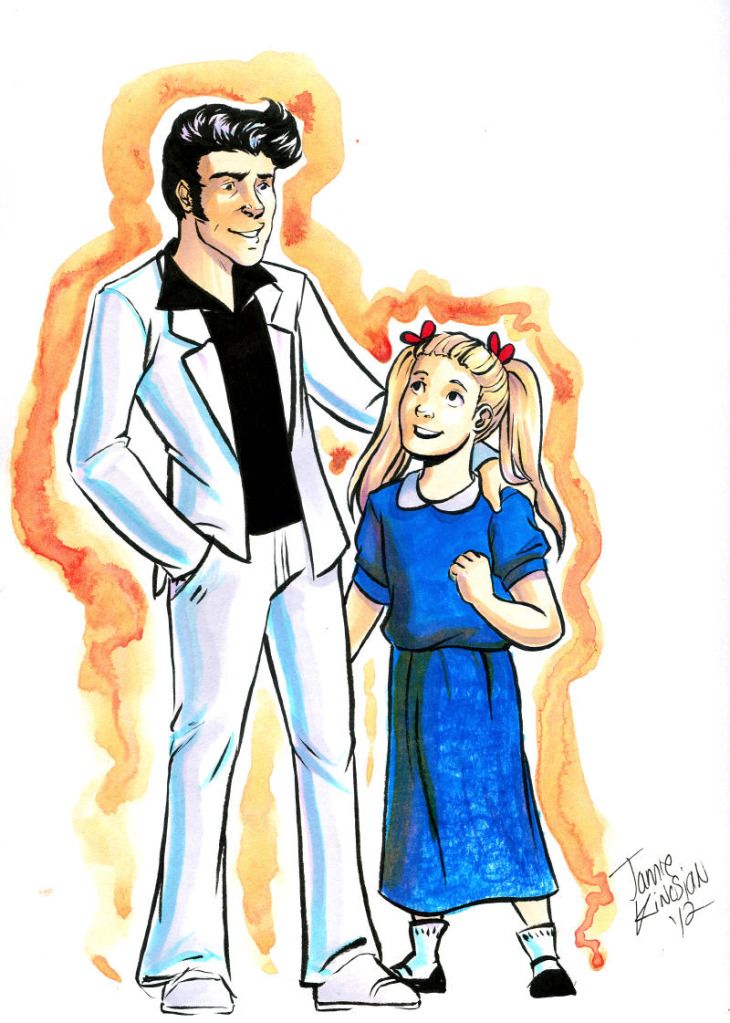
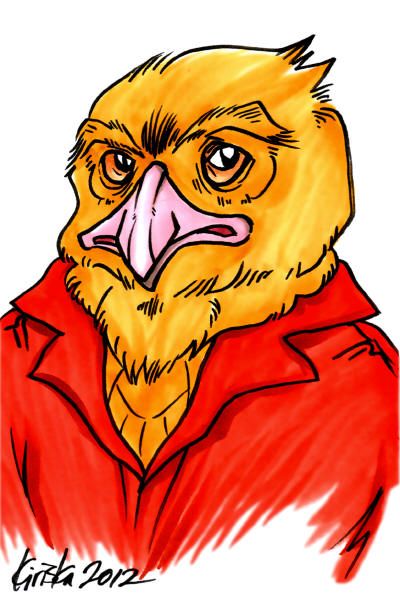
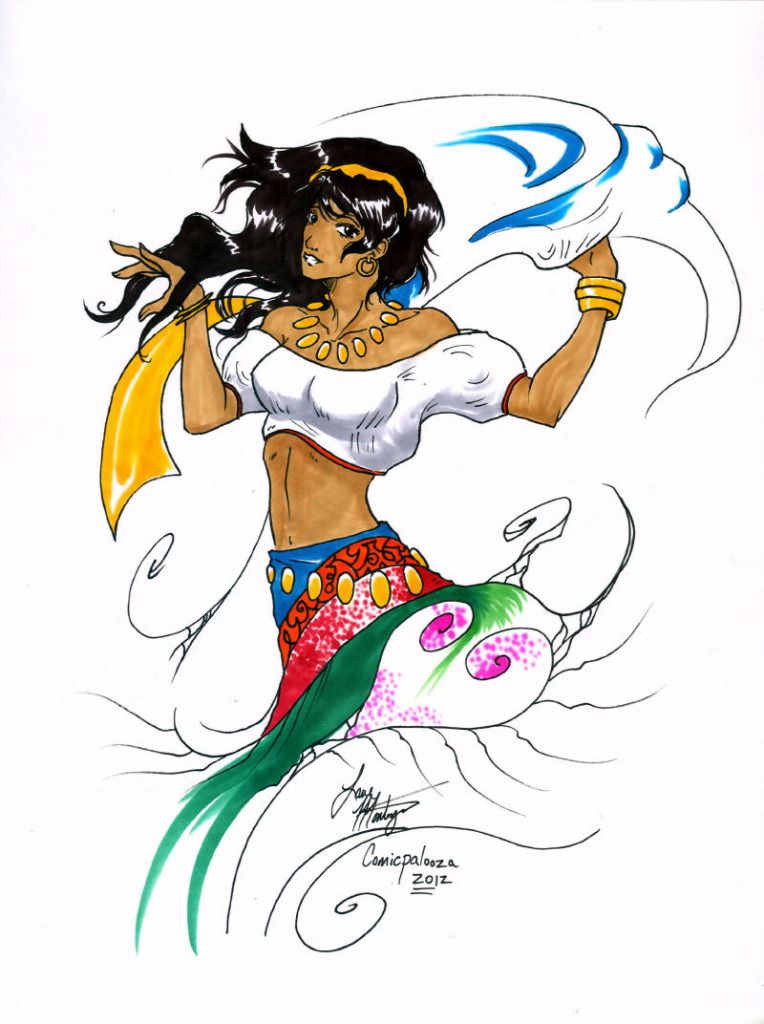
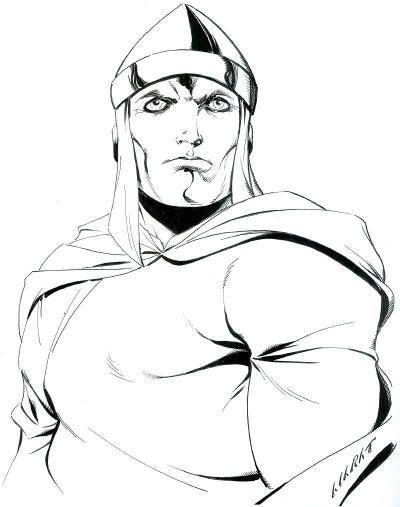

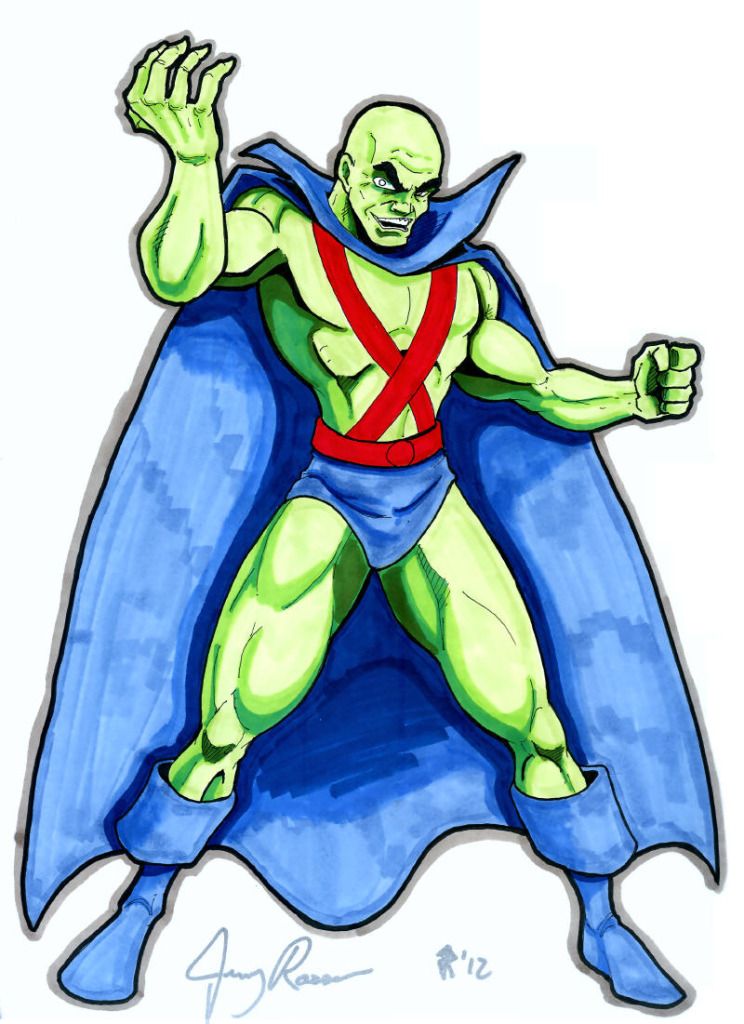
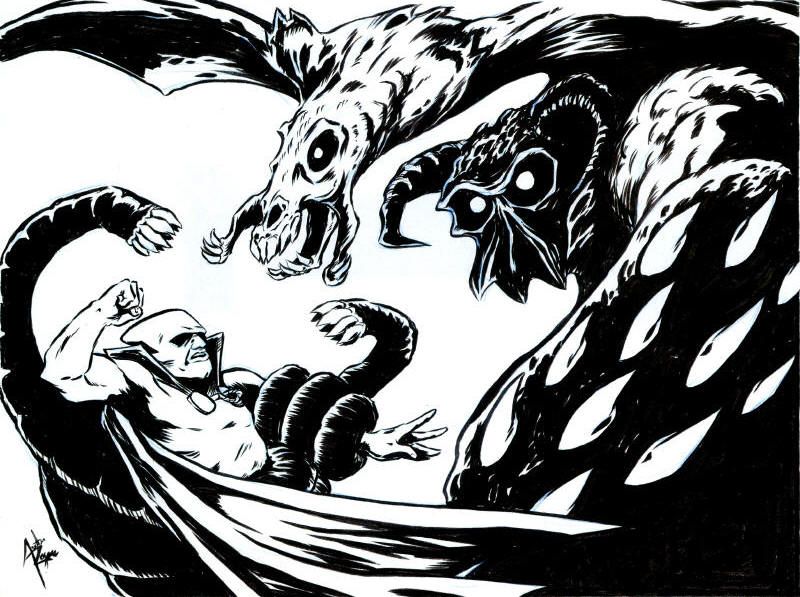
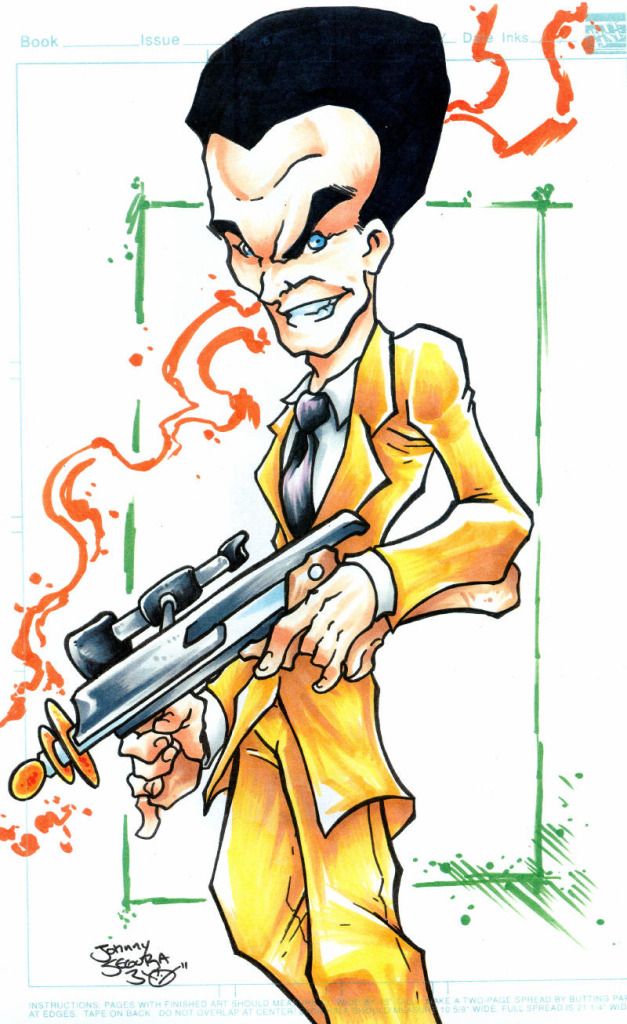
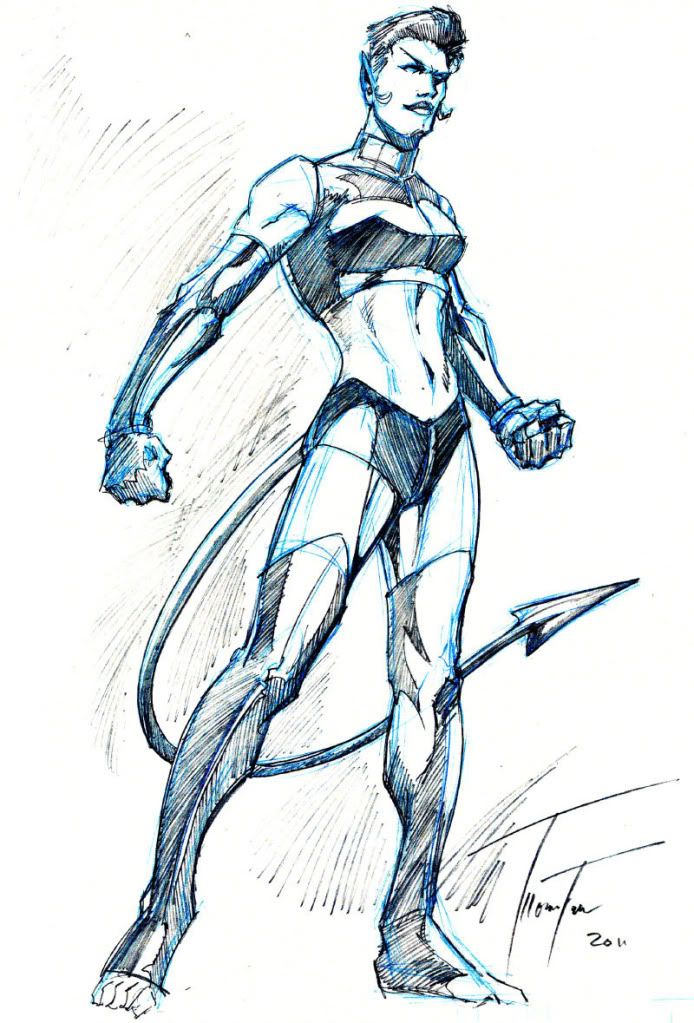
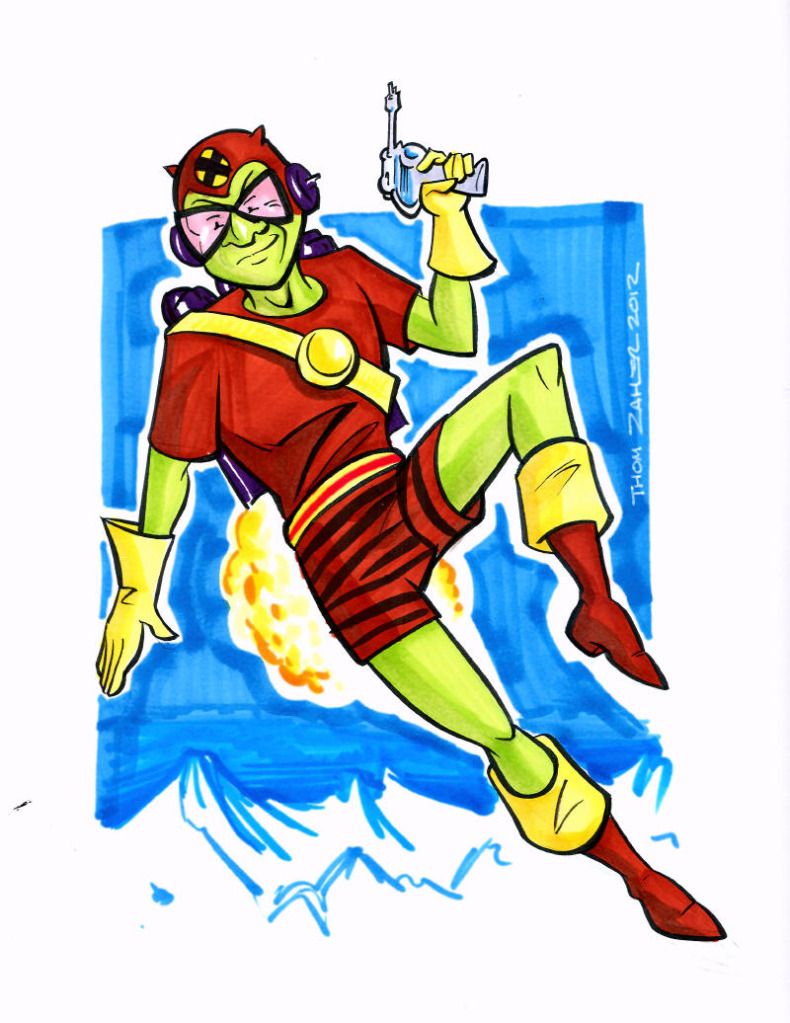
 Due to the manipulations of a former subject, Atlantis declared war on the surface world and flooded a major U.S. city.
Their ruler Ocean Master was eventually defeated, and Aquaman took back the throne, but there was widespread animosity over the incident. Back at their satellite headquarters, Batman called the Justice League together for a new initiative. "We need to do what we haven't done before... We open our ranks." At A.R.G.U.S., Amanda Waller saw a similar need. "Atlantis's (sic) attack is the event we needed to push this operation through, Colonel Trevor... The world's skeptical. They want another team. They need one." A third mysterious meeting was taking place elsewhere, as a villain looked over snapshots of DC rogues. "The opportunity is now. It's time for recruitment... starting with the Scarecrow."
Due to the manipulations of a former subject, Atlantis declared war on the surface world and flooded a major U.S. city.
Their ruler Ocean Master was eventually defeated, and Aquaman took back the throne, but there was widespread animosity over the incident. Back at their satellite headquarters, Batman called the Justice League together for a new initiative. "We need to do what we haven't done before... We open our ranks." At A.R.G.U.S., Amanda Waller saw a similar need. "Atlantis's (sic) attack is the event we needed to push this operation through, Colonel Trevor... The world's skeptical. They want another team. They need one." A third mysterious meeting was taking place elsewhere, as a villain looked over snapshots of DC rogues. "The opportunity is now. It's time for recruitment... starting with the Scarecrow."

